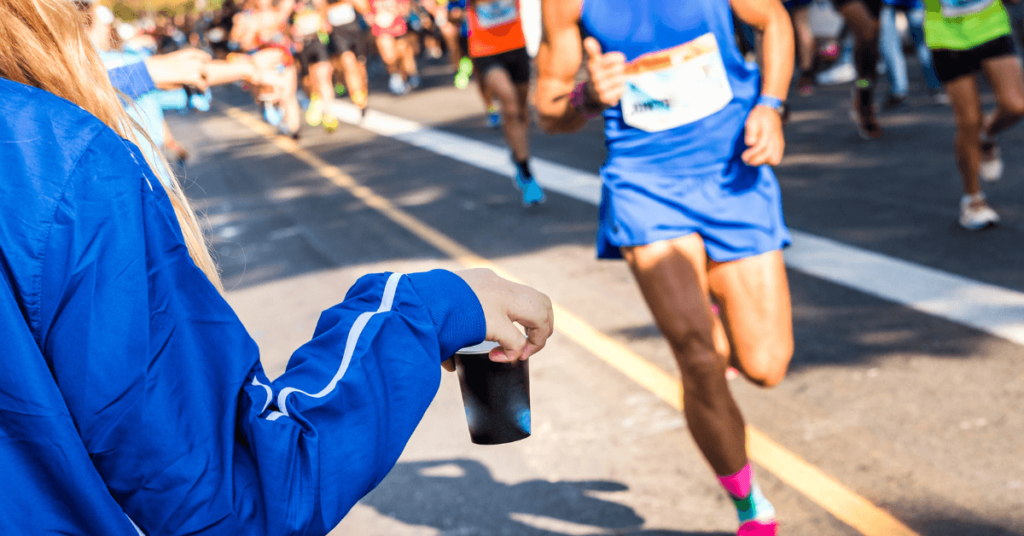Whether you are a seasoned runner or just starting your journey in long-distance running, staying hydrated during a 10K run is essential to maintain peak performance and avoid potential health risks. Adequate hydration ensures that your body functions optimally and helps prevent dehydration-related complications. However, finding the right balance between drinking enough water and avoiding overhydration can be challenging. In this article, we will explore the importance of hydration during a 10K run, backed by research and key statistics, and provide guidelines on how often you should drink water during the race.
Table of Contents
ToggleThe Importance of Hydration during a 10K Run
During a 10K run, your body undergoes significant exertion, resulting in increased sweat production and fluid loss. Proper hydration is crucial for several reasons:
1. Optimal Performance:
Staying hydrated enhances your physical performance by regulating body temperature, maintaining cardiovascular function, and supporting muscular efficiency. Dehydration can lead to reduced endurance, muscle cramps, and fatigue, negatively impacting your running performance.
2. Electrolyte Balance:
Sweating not only causes fluid loss but also leads to the depletion of essential electrolytes, such as sodium, potassium, calcium, and magnesium. Maintaining electrolyte balance is vital for nerve and muscle function, preventing cramps, and avoiding hyponatremia (low sodium levels).
3. Health and Safety:
Dehydration during a 10K run can have serious health consequences, including heat-related illnesses like heat exhaustion and heatstroke. It is essential to prevent these conditions by staying properly hydrated.

Research and Guidelines
Various research studies have been conducted to determine the optimal water intake during a 10K run. The American College of Sports Medicine (ACSM) and the International Marathon Medical Directors Association (IMMDA) provide guidelines that can be applied to a 10K race:
1. Pre-hydration: Start the race well-hydrated. Consume approximately 17-20 fl. oz (500-600 ml) of water 2 to 3 hours before the race. Additionally, drink 7-10 fl. oz (200-300 ml) of water 20-30 minutes before the run to top off your fluid levels.
2. During the Run: During a 10K run, aim to consume 3-6 fl. oz (90-180 ml) of water every 15-20 minutes, depending on individual factors like sweat rate and weather conditions. Some runners may prefer sports drinks that contain electrolytes to replenish sodium and other minerals lost through sweating.
3. Listen to Your Body: While guidelines provide a general framework, individual hydration needs can vary. Pay attention to your body’s signals and adjust your fluid intake accordingly. If you feel thirsty, take a few sips of water, but avoid overdrinking, as it may lead to hyponatremia.
4. Post-run Hydration: After completing the 10K run, continue to rehydrate by drinking water or electrolyte-rich beverages. Aim to consume around 16-24 fl. oz (500-750 ml) of fluid for every pound (0.45 kg) of body weight lost during the run.

Monitoring Fluid Loss
An effective way to gauge your fluid loss during a 10K run is to weigh yourself before and after the race. For every pound lost during the run, drink approximately 16 fl. oz (500 ml) of water to rehydrate fully.
Environmental Factors
Environmental conditions play a significant role in determining your hydration needs during a 10K run. Hot and humid weather increases sweat rates, which, in turn, necessitates higher fluid intake. On the other hand, cooler conditions may result in lower fluid losses.
Conclusion
Staying adequately hydrated during a 10K run is crucial for optimizing performance, ensuring safety, and preventing dehydration-related issues. Following established guidelines and listening to your body’s signals will help you strike the right balance between fluid intake and performance. Remember to start the race well-hydrated, sip water at regular intervals during the run, and continue rehydration post-race. By prioritizing proper hydration, you can enjoy a more successful and enjoyable 10K running experience.


